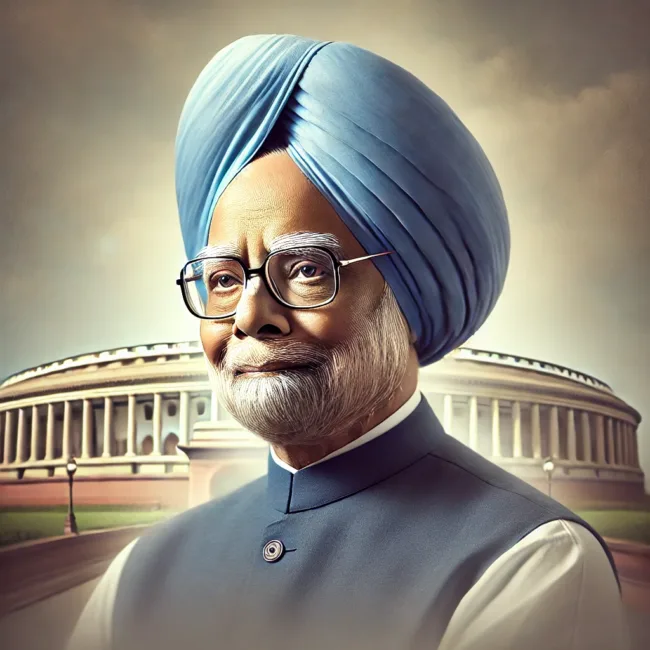The visionary legacy of Manmohan Singh: India’s architect of economic transformation
India mourns the loss of Manmohan Singh, a revered statesman whose profound influence reshaped the country’s economic trajectory. Singh, who passed away on December 26, 2024, at the age of 92, served as India’s 13th Prime Minister and is widely celebrated for initiating the economic reforms that opened India to global markets. His death marks the end of an era in Indian politics and economics, leaving behind an enduring legacy that continues to shape modern India.
A Journey Rooted in Humility and Excellence
Born on September 26, 1932, in Gah, Punjab, now part of Pakistan, Manmohan Singh’s early life was shaped by the trials of partition. After migrating to India, he pursued academic excellence with an unwavering commitment. Singh earned his undergraduate degree from Panjab University, followed by advanced studies at the University of Cambridge, and a doctorate from Nuffield College, Oxford. His academic rigor laid the foundation for a distinguished career as an economist, policymaker, and eventually a global statesman.

Architect of Indian Economic Reforms
Manmohan Singh’s defining contribution to India was his role as Finance Minister during a time of economic crisis in 1991. Appointed under Prime Minister P. V. Narasimha Rao, Singh introduced reforms that transitioned India from a protectionist economy to a market-driven model. These reforms dismantled the Licence Raj, encouraged foreign investment, and modernized trade policies.
Economists regard the 1991 reforms as a watershed moment that positioned India as a rising global economic power. An analyst described Singh’s vision as a “recalibration of India’s economic destiny.” By liberalizing the economy, Singh not only averted a financial collapse but also laid the groundwork for decades of growth.
Leadership on the Global Stage
In 2004, Manmohan Singh became India’s first Sikh Prime Minister, leading the country for two consecutive terms. His leadership emphasized inclusivity and economic development, achieving milestones such as the Indo-U.S. nuclear deal of 2008. This landmark agreement ended decades of nuclear isolation for India and strengthened bilateral ties with the United States.
Domestically, Singh championed welfare programs like the Mahatma Gandhi National Rural Employment Guarantee Act, aimed at alleviating rural poverty. However, his tenure also faced significant challenges. Allegations of corruption, including the allocation of coal blocks and scandals surrounding the Commonwealth Games, tarnished the latter years of his administration. Political analysts believe these controversies contributed to the Indian National Congress’s defeat in the 2014 general elections.
A Statesman of Integrity
Manmohan Singh’s leadership style was characterized by humility, intellect, and integrity. Political leaders across the spectrum have praised his contributions. Prime Minister Narendra Modi acknowledged Singh as a “scholarly leader who strengthened India’s economic foundations.” Rahul Gandhi referred to him as a “mentor who guided India through its most challenging economic periods.”
Singh was equally respected on the international stage. Former U.S. President Barack Obama called him “a man of uncommon wisdom and decency,” highlighting his role in fostering global partnerships.
An Enduring Economic Vision
Manmohan Singh’s impact extended beyond his political roles. As an economist, he authored seminal works like India’s Export Trends and Prospects for Self-Sustained Growth, reflecting his deep understanding of trade policy and development economics. His scholarly contributions and policy reforms have left an indelible mark on India’s governance and global standing.
Remembering a Visionary
Manmohan Singh is survived by his wife, Gursharan Kaur, and their three daughters. His death not only marks the loss of a towering figure but also a moment to reflect on his unparalleled contributions to India’s progress. While challenges marred parts of his tenure, his vision for a liberalized economy and his dedication to public service remain etched in the nation’s collective memory.
Discover more from Business-News-Today.com
Subscribe to get the latest posts sent to your email.

